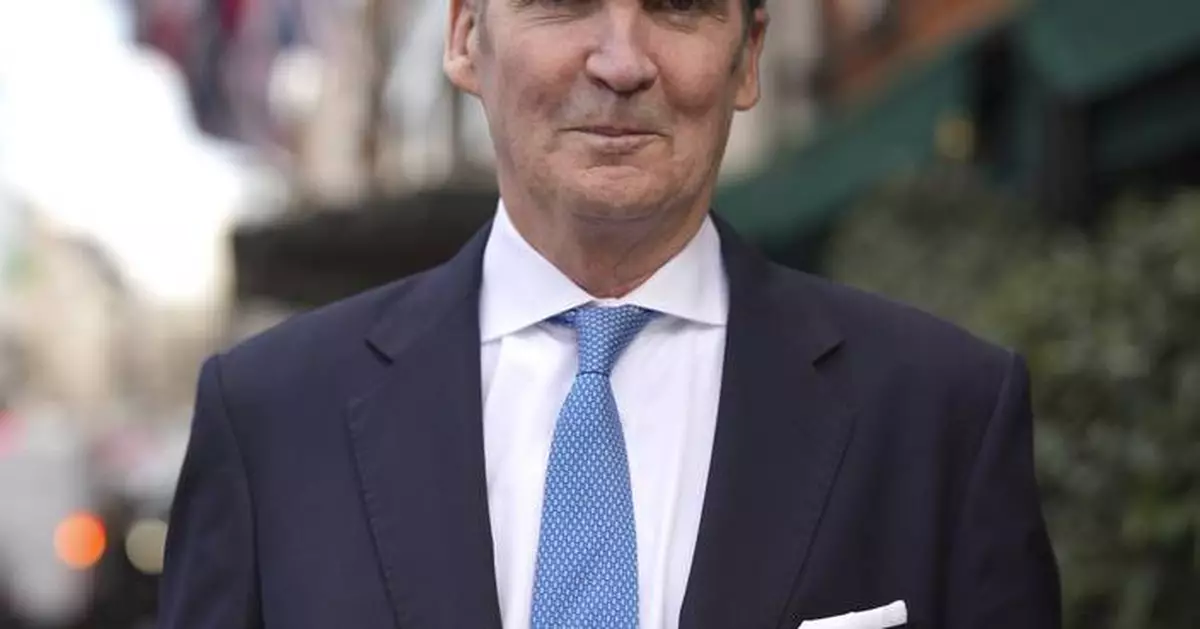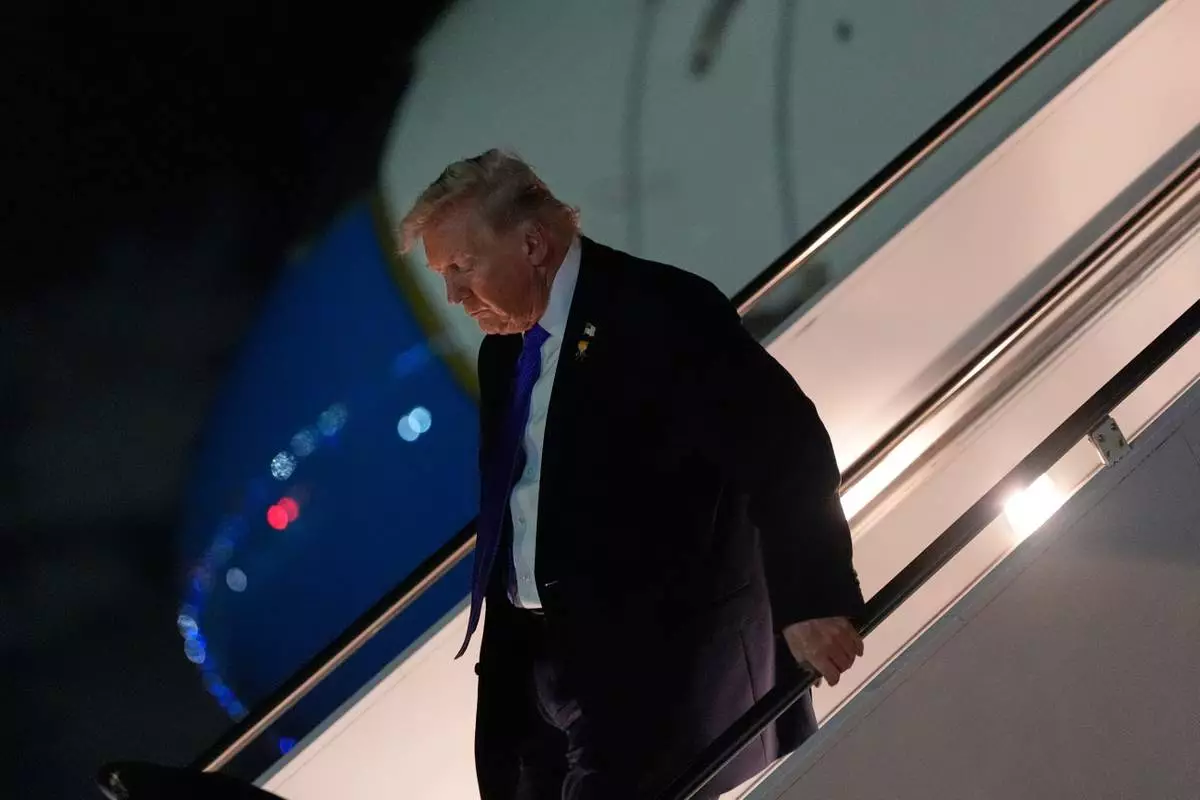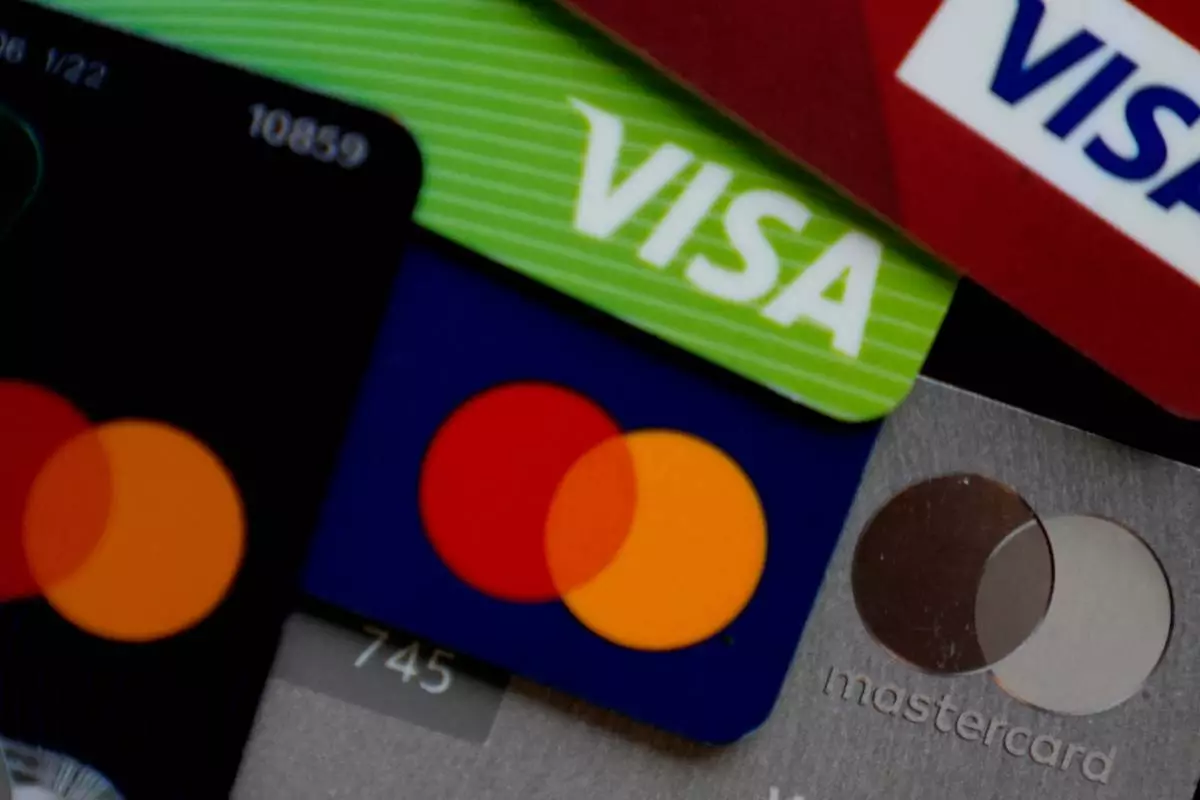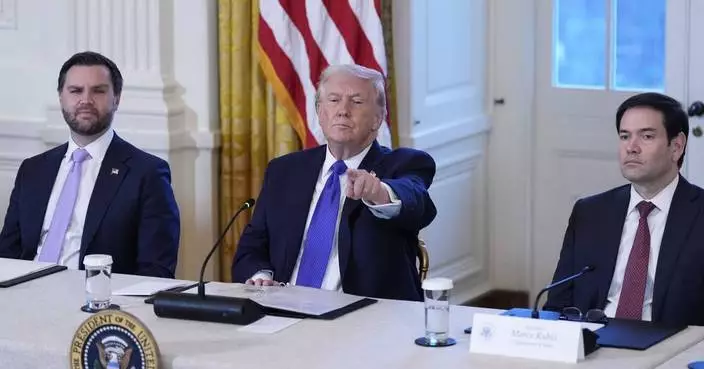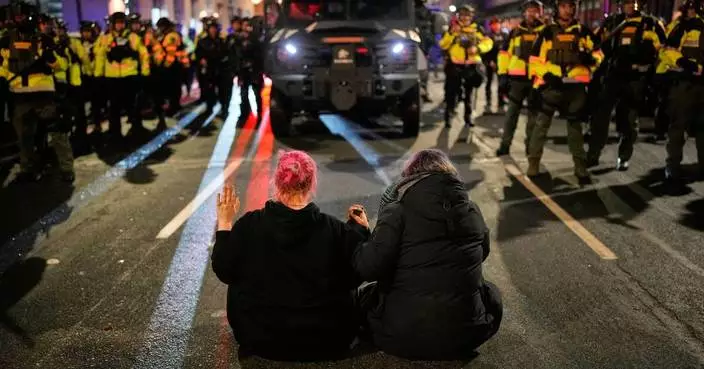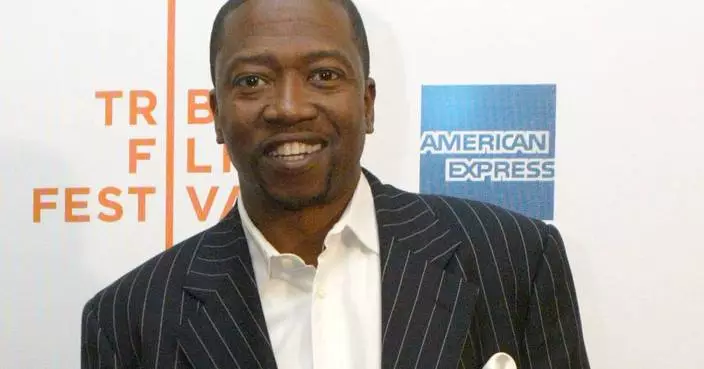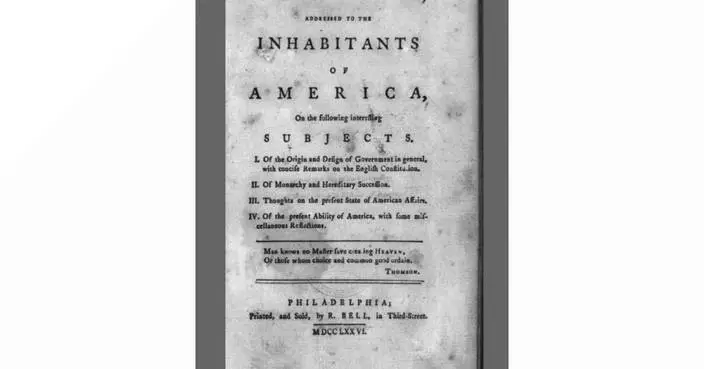LONDON (AP) — The urgent care doctor cocked an eyebrow at Mari Santos and her American accent.
It was four days after President Donald Trump's inauguration, and Santos was a student with a stomach bug in the first weeks of an overseas semester in Glasgow, Scotland. A doctor arrived to see her after a six-hour wait. But before asking what ailed her, he said this: “Interesting time to be an American, I suppose."
Until then, Santos, 20, had not been thinking about Trump — just her 104-degree fever and concern about being sick while abroad. But the president and his triumphant return to the White House, she says, were on her physician's mind, giving the American University student an instant education in geopolitics. The lesson, as she sees it: “There's a kind of chilling in the air.”
“I knew that maybe that Europe is not in general big fan of American politics,” Santos said, “but I didn't expect it to be such like a personal thing.”
The United States and its center of gravity occupy a unique space in the international conversation. People the world over talk about America — its policies, its proclivities, its place in the world. They have for generations. They did it during the Iraq War. They did it during the first Trump administration.
And two months into Trump 2.0, at least in many European and English-speaking countries, it's happening again — sometimes even more intensely.
Answering for America under the new Trump administration is becoming a delicate experience for some of the estimated 5 million U.S. citizens living in other countries.
From Santos in Scotland to others in New Zealand, France, Germany, the United Kingdom and Canada, Republican and Democratic expats alike told The Associated Press in recent weeks that the moment they are revealed to be American changes virtually every conversation to, in essence, “What about Trump?”
At its root, this change is about whom to trust among those thought until now to be allies, in world politics and in life. Trump, known for insisting the truth is what he says it is, is now the voice of America — not VOA, the independent news service that told the nation's story for eight decades until he silenced it March 16. The president himself has set an example in which trust is almost beside the point.
“Who do I trust? I mean, who do you trust? Do you trust anybody?” he said during an interview last month with The Spectator, when asked how much he trusts people like Jeff Bezos, owner of The Washington Post.
What comes after the revelation that someone is American, U.S. citizens overseas say, are awkward questions, pauses and euphemisms — but almost always a reference to America under Trump in 2025.
“Before this year, the typical follow-up would be asking where exactly I’m from and what brought me to France,” said Anthony Mucia, 31, a Nebraska native who lives in Toulouse, France and has been overseas for six years. “Twice now, the first thing someone asked me was, ‘Are you glad to be in France now?’” He also gets looks that he interprets as “a bit of ‘shock’ or ‘uneasiness.’ Almost like it automatically turned into an embarrassing topic.”
What's bending these interactions, expats say, is Trump’s flurry of orders and statements that have upended 80 years of international order and spooked markets.
He’s talked about how the U.S. will “one way or the other” capture Greenland from Denmark, “take back” Panama and make Canada the 51st U.S. state. He wants to empty and develop war-battered Gaza, and has cut off U.S. aid to the world’s neediest people. He’s falsely blamed President Volodymyr Zelenskyy for starting the Russian invasion and ended a White House meeting with Zelenskyy after berating the Ukrainian leader. Trump has let Europe’s leaders know that the U.S. is not a staunch ally in facing the Russian threat. And he’s set off tariff wars with China, Canada and Mexico.
Not smoothing the American experience overseas is the backlash developing against Trump’s association with Elon Musk and Tesla, which has fueled growing boycott movements. People are joining Facebook groups to exchange ideas about how to avoid U.S. products. Feelings are especially strong across the Nordic region — particularly Denmark, where Trump’s moves have set “the Danish Viking blood boiling,” one man told The Associated Press.
So far, the interactions are less hostile than wary, Americans overseas say. But anti-U.S. sentiment is emerging as a concern on the cusp of what's expected to be a record-setting international travel season for Americans.
Jake Lamb, 32, moved from Colorado to Auckland, New Zealand in 2023. He said says he's “noticed a significant shift in the types and frequency of questions I’m asked” over the past year. Kiwis remain friendly about it, but they've been saying they might have to “hide” Lamb or vouch that he's “one of the good ones” if Trump escalates conflicts with former allies. He thinks that the good humor belies wariness.
“I am concerned that it may become difficult for some not to hold individual Americans responsible,” Lamb, a volunteer coordinator for a charity and who voted for Democrat Kamala Harris, said in an email.
Elizabeth Van Horne, 33, has lived in France since 2013. For years, she said, people would ask “why on Earth I'd come to live in France if I could live in the U.S: 'It's so beautiful, there's so much potential, so much opportunity, like living in a TV show.'”
“Now, that romanticized image has completely changed,” Van Horne, a Democrat, said in an email. Early in March, a postal worker told her it's sad to watch.
“For me,” she said, “that conversation summed it up: ‘Je suis desole pour vous’ — ‘I’m sorry for you.'”
Georganne Burke, a Syracuse, N.Y., native living in Ottawa, supported Trump in all three elections and is the chairwoman of Republicans Overseas in Canada. She's a dual citizen, which makes her something like the Peace Bridge that links the two nations in Buffalo, N.Y.
Trump's tariff war, his manner and his provocative talk about how Canada “only works” as the 51st U.S. state “has everybody's hair on fire," she said in an interview. Burke, 77, says she's received threats and had a tense talk with an anti-Trump co-worker. People ask her, “How could anyone vote for him?"
An invitation to speak about trade near the end of March, she says, came with the organizer saying that he was “pretty sure that most of the people will be polite.” Burke accepted the invitation.
She says anti-American sentiment was bad during the Iraq war under President George W. Bush in 2003. But now it's different.
“Then, it was kind of more on the politicians,” as the targets of public ire, Burke said in a recent interview. “Now, it's much more personal.”
Burke's counterpart in London, Greg Swenson of Republicans Overseas UK, says walking around as an American in another country remains more positive than negative. In interviews with media outlets, he readily acknowledges Trump can be “obnoxious.” But Swenson, 62, is an investment banker, and he says the president and America remain good for business.
“In the private capital world, which is not affected by day-to-day (market) volatility, there is just a huge amount of optimism,” Swenson said. That means, he says, that investors want to work with U.S. vendors and customers, seeking American “credibility” through “an affiliation with the president.”
As for what people overseas think of Americans right now: A survey of social media, neighbors and others shows plenty are curious and concerned. When an American dad posted on Reddit his worry that his family won't be welcomed in Ireland, an Irish dad who asked the AP to identify him by his Reddit handle responded this way:
“A lot of people like me are really, really alienated and angry at the US and Americans,” wrote MDMB13. "But the good news is we’re Irish so you’ll never know because (we) bury our feelings in a far-off place and let them fester over decades.” He ended his comment with a smile emoji.
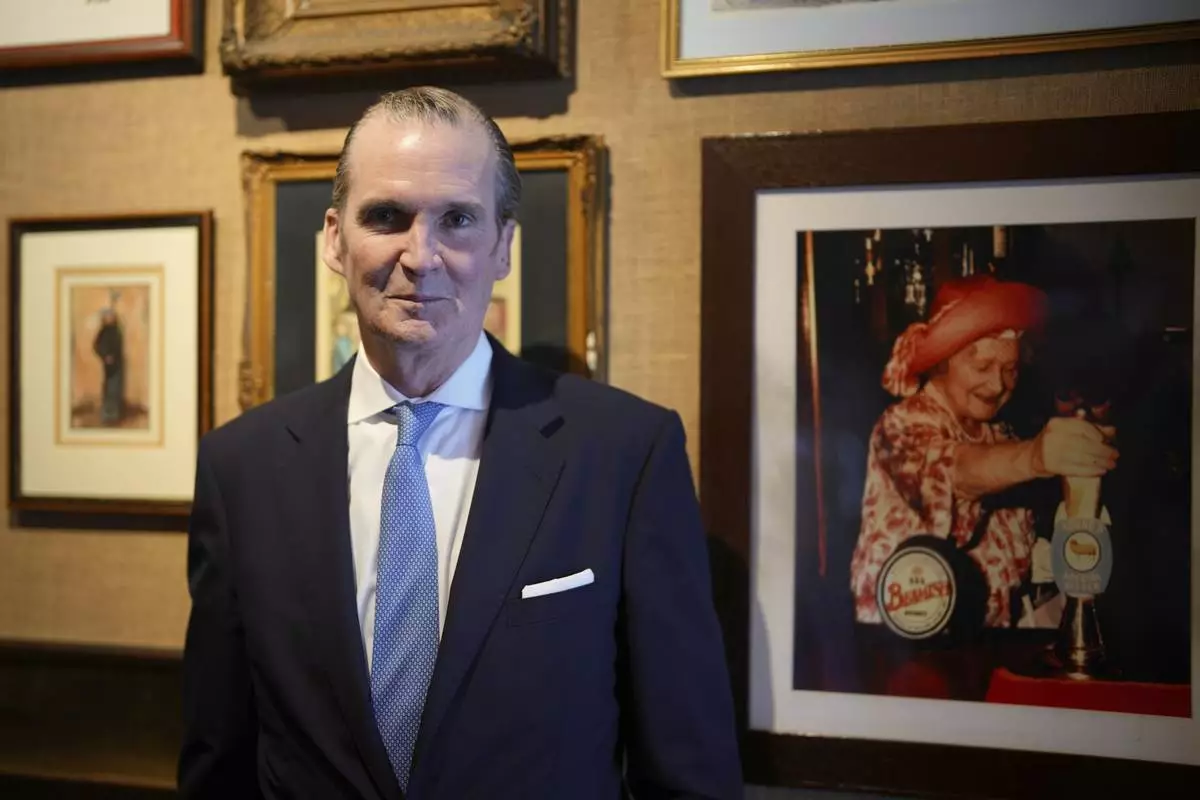
Greg Swenson of Republicans Overseas UK, poses for a photograph in London, Thursday, March 20, 2025. (AP Photo/Kin Cheung)
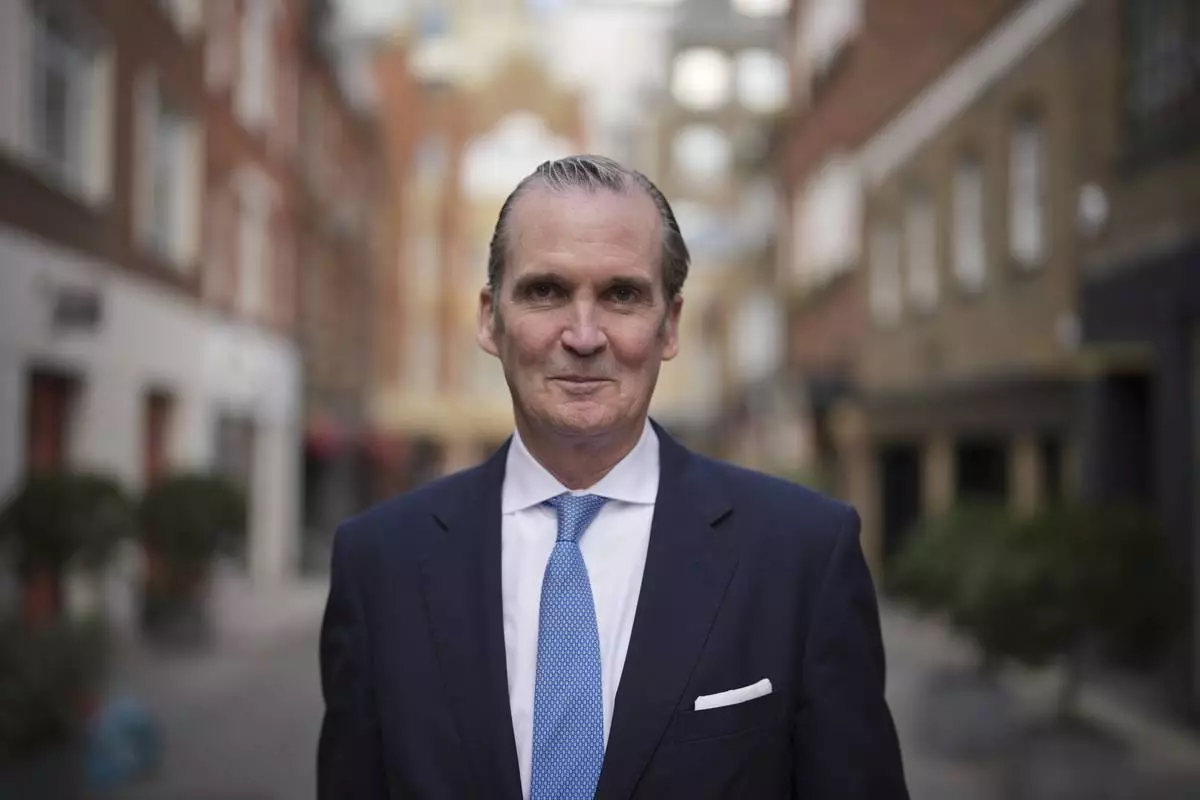
Greg Swenson of Republicans Overseas UK, poses for a photograph in London, Thursday, March 20, 2025. (AP Photo/Kin Cheung)
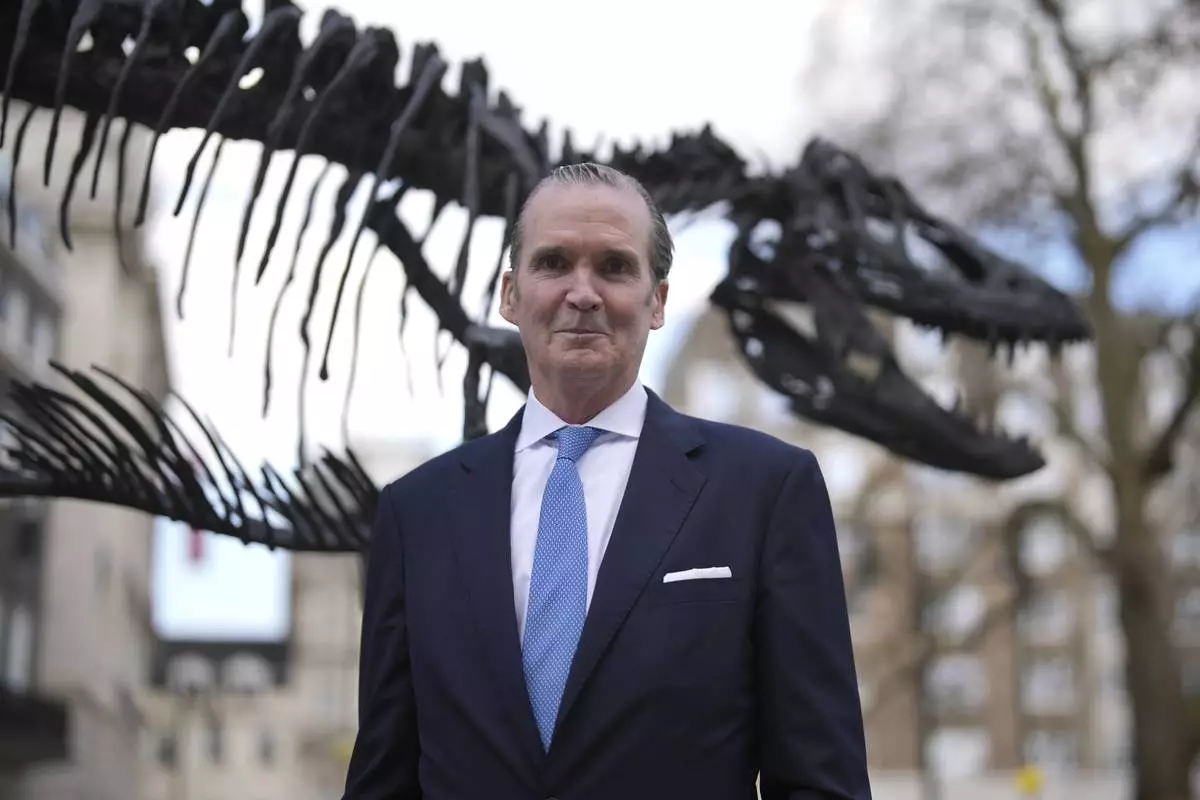
Greg Swenson of Republicans Overseas UK, poses for a photograph in London, Thursday, March 20, 2025. (AP Photo/Kin Cheung)
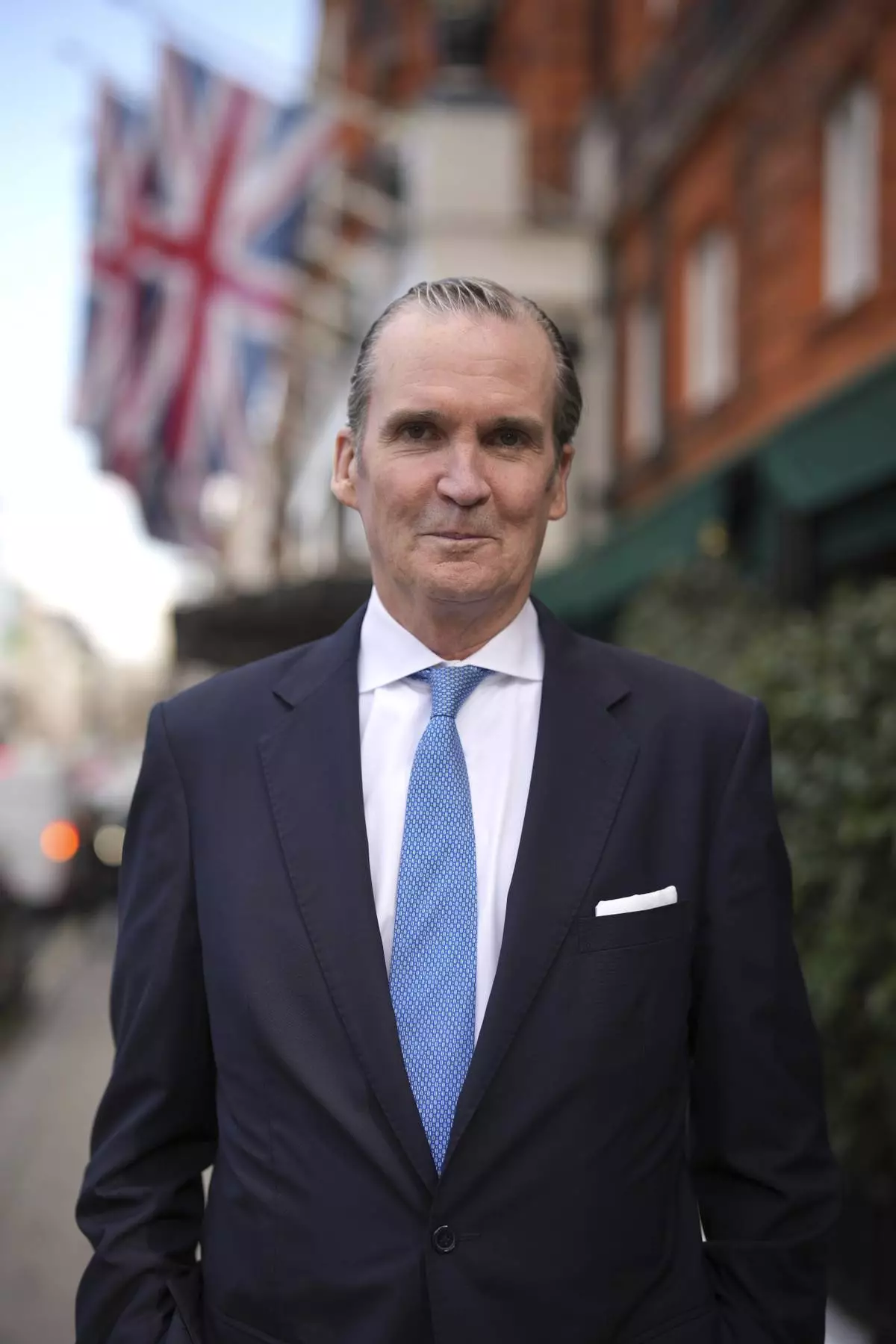
Greg Swenson of Republicans Overseas UK, poses for a photograph in London, Thursday, March 20, 2025. (AP Photo/Kin Cheung)


